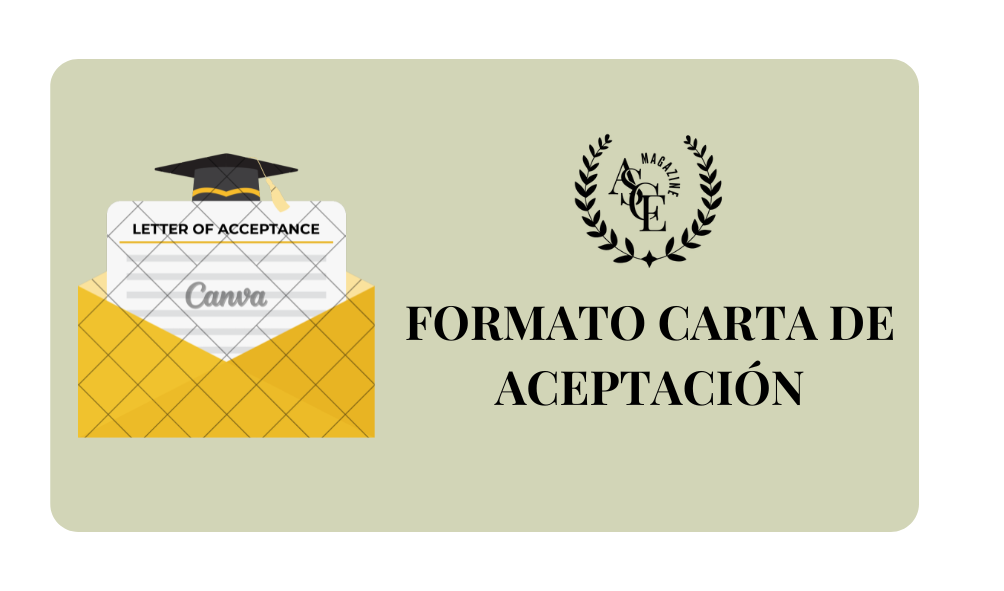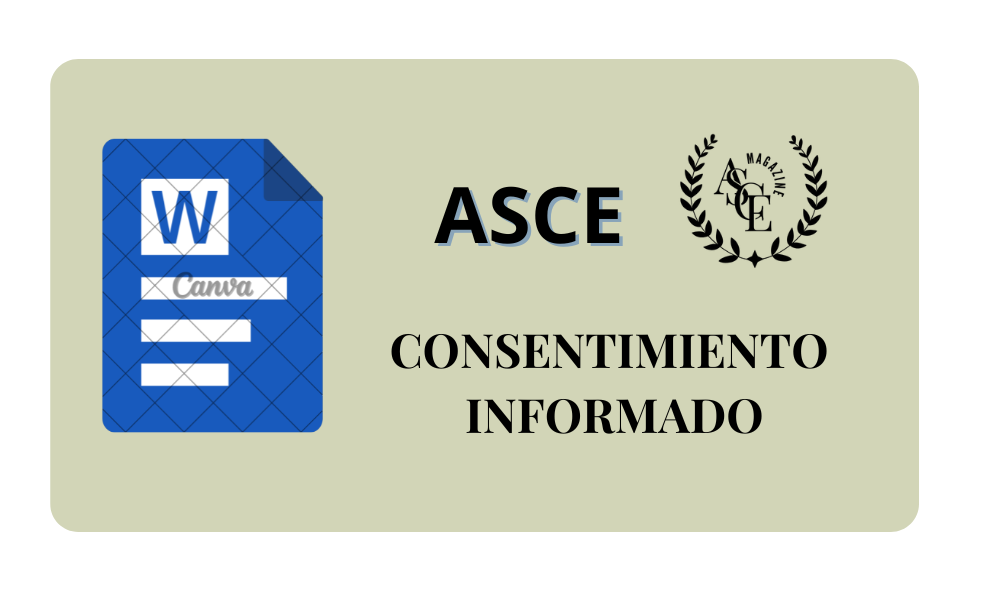Juego simbólico digital y desarrollo de la función ejecutiva en niños de 4 a 5 años: un enfoque neuroeducativo en la educación inicial.
DOI:
https://doi.org/10.70577/asce.v4i4.462Palabras clave:
Juego Simbólico Digital; Función Ejecutiva; Neuroeducación; Educación Inicial; Aprendizaje Mediado Por Tecnología; Resolución De Problemas Complejos.Resumen
El estudio titulado “Juego simbólico digital y desarrollo de la función ejecutiva en niños de 4 a 5 años: un enfoque neuroeducativo en la educación inicial” se centra en el análisis del desarrollo de las funciones ejecutivas, más específicamente en la memoria de trabajo, inhibición y flexibilidad cognitiva, en la educación inicial y el potencial que los juegos simbólicos digitales pueden tener como estrategia para el fortalecimiento de las funciones ejecutivas en la primera infancia. Se adoptó un diseño cuasi-experimental mixto con una muestra de 60 niños de instituciones públicas urbanas en Ecuador, divididos en grupos experimental y control. La intervención consistió en implementar una plataforma digital adaptativa durante ocho semanas, con sesiones estructuradas que incluían dramatización, resolución de problemas y mediación docente. Las herramientas utilizadas incluyeron pruebas estandarizadas de observación, desempeño digital sistematizado, entrevistas y análisis. Los resultados mostraron una mejora estadísticamente significativa en el grupo experimental en comparación con el grupo control (p < .001) con la mayor mejora en memoria de trabajo y flexibilidad cognitiva. Cualitativamente, se observaron aumentos en autorregulación, planificación y acción simbólica cooperativa. Estos hallazgos demuestran que la interacción lúdico-digital guiada activa las redes prefrontales asociadas a la regulación cognitiva y emocional, fomentando la autonomía y la resolución compleja de problemas en los niños. Se argumenta que el juego simbólico digital, bajo un enfoque neuroeducativo, constituye una propuesta innovadora para la transformación sistémica de la educación inicial, dado que permite la integración de emoción, cognición y tecnología, en el desarrollo de experiencias de aprendizaje que se vuelven significativas a un nivel altamente creativo, metacognitivo y que, además, preparan a los niños para contextos de aprendizaje más complejos.
Descargas
Citas
Alotaibi, M. S. (2024). Game-based learning in early childhood education: A systematic review and meta-analysis. Early Childhood Research Quarterly. https://doi.org/10.1016/j.ecresq.2024.11018941 DOI: https://doi.org/10.3389/fpsyg.2024.1307881
Behnamnia, N., Kamsin, A., & Faizollahzadeh-Ardabili, M. (2023). A review of using digital game-based learning for preschoolers. Educational Technology Research and Development. https://doi.org/10.1007/s40692-022-00240-0 DOI: https://doi.org/10.1007/s40692-022-00240-0
Bernal Párraga , A. P., Baquez Chávez, A. L., Hidalgo Jaen, N. G., Mera Alay, N. A., & Velásquez Araujo, A. L. (2024). Pensamiento Computacional: Habilidad Primordial para la Nueva Era . Ciencia Latina Revista Científica Multidisciplinar, 8(2), 5177-5195. https://doi.org/10.37811/cl_rcm.v8i2.10937 DOI: https://doi.org/10.37811/cl_rcm.v8i2.10937
Bernal Parraga , A. P., Naguas Nagua, J. A., Villarreal Bonifaz , M. M., Santillán Sevillano , N. D. C., Reyes Ordoñez, J. P., Carrillo Baldeón, V. P., & Macas Pacheco, C. (2025). Gamificación como estrategia innovadora para promover el aprendizaje significativo en Estudios Sociales. Ciencia Latina Revista Científica Multidisciplinar, 9(1), 1044-1061. https://doi.org/10.37811/cl_rcm.v9i1.15860 DOI: https://doi.org/10.37811/cl_rcm.v9i1.15860
Bernal Párraga , A. P., Ninahualpa Quiña, G., Cruz Roca, A. B., Sarmiento Ayala, M. Y., Reyes Vallejo, M. E., Garcia Carrillo, M. D. J., & Benavides Espín, D. S. (2024). Innovation in Early Childhood: Integrating STEM from the Area of Mathematics for Significant Improvement. Ciencia Latina Revista Científica Multidisciplinar, 8(4), 5675-5699. https://doi.org/10.37811/cl_rcm.v8i4.12779 DOI: https://doi.org/10.37811/cl_rcm.v8i4.12779
Bernal Párraga , A. P., Toapanta Guanoquiza, M. J., Martínez Oviedo, M. Y., Correa Pardo, J. A., Ortiz Rosillo, A., Guerra Altamirano, I. del C., & Molina Ayala, R. E. (2024). Aprendizaje Basado en Role-Playing: Fomentando la Creatividad y el Pensamiento Crítico desde Temprana Edad. Ciencia Latina Revista Científica Multidisciplinar, 8(4), 1437-1461. https://doi.org/10.37811/cl_rcm.v8i4.12389 DOI: https://doi.org/10.37811/cl_rcm.v8i4.12389
Bernal Parraga, A. P., Cadena Morales, A. G., Cadena Morales, J. A., Mejía Quiñonez, J. L., Alcívar Vélez, V. E., Pinargote Carreño, V. G., & Tello Mayorga, L. E. (2024). Impacto de las Plataformas de Gamificación en la Enseñanza: Un Análisis de su Efectividad Educativa. Ciencia Latina Revista Científica Multidisciplinar, 8(5), 2851-2867. https://doi.org/10.37811/cl_rcm.v8i5.13742 DOI: https://doi.org/10.37811/cl_rcm.v8i5.13742
Bernal Párraga, A. P., Medina Marino, P. A., Cholango Tenemaza, E. G., Zamora Franco, A. F., Zamora Franco, C. G., & López Sánchez, I. Y. (2024). Educación especial en metodologías de discapacidad múltiple intelectual y física: Un enfoque inclusivo. Ciencia Latina Revista Científica Multidisciplinar, 8(3), 3229-3248. https://doi.org/10.37811/cl_rcm.v8i3.11544 DOI: https://doi.org/10.37811/cl_rcm.v8i3.11544
Bernal Parraga, A. P., Toapanta Guanoquiza, M. J., Sandra Veronica, L. P., Borja Ulloa, C. R., Esteves Macias, J. C., Dias Mena, B. V., & Orozco Maldonado, M. E. (2024). Desarrollo de Habilidades Sociales y Emocionales a través de Proyectos Colaborativos en Educación Inicial: Estrategias Inclusivas para Estudian-tes con Necesidades Educativas Especiales. Ciencia Latina Revista Científica Multidisciplinar, 8(4), 10134-10154. https://doi.org/10.37811/cl_rcm.v8i4.13156
Bernal Parraga, A. P., Toapanta Guanoquiza, M. J., Sandra Veronica, L. P., Borja Ulloa, C. R., Esteves Macias, J. C., Dias Mena, B. V., & Orozco Maldonado, M. E. (2024). Desarrollo de Habilidades Sociales y Emocionales a través de Proyectos Colaborativos en Educación Inicial: Estrategias Inclusivas para Estudian-tes con Necesidades Educativas Especiales. Ciencia Latina Revista Científica Multidisciplinar, 8(4), 10134-10154. https://doi.org/10.37811/cl_rcm.v8i4.13156 DOI: https://doi.org/10.37811/cl_rcm.v8i4.13156
Birtwistle, E., Chernikova, O., Wünsch, M., & Niklas, F. (2025). Training of executive functions in children: A meta-analysis of cognitive training interventions. SAGE Open, 15(1). https://doi.org/10.1177/21582440241311060 DOI: https://doi.org/10.1177/21582440241311060
Bjorklund, D. F. (2022). Children’s evolved learning abilities and their implications for education. Educational Psychology Review, 34(6), 2671–2704. https://doi.org/10.1007/s10648-022-09688-z DOI: https://doi.org/10.1007/s10648-022-09688-z
Bochicchio, V., Keith, K., Montero, I., Scandurra, C., & Winsler, A. (2022). Digital media inhibit self-regulatory private speech use in preschool children: The “digital bubble effect”. Cognitive Development, 62, 101180. https://doi.org/10.1016/j.cogdev.2022.101180 DOI: https://doi.org/10.1016/j.cogdev.2022.101180
Briones Franco, J. G., Ponce Uzhca, V. P., Tisalema Fiallos, A. M., Acosta Chafuel, P. V., & Ochoa Briones, M. K. (2025). El juego simbólico como vehículo para la autorregulación emocional y el desarrollo del lenguaje oral en educación inicial: Un abordaje desde la neuroeducación y la práctica reflexiva docente . ASCE MAGAZINE, 4(3), 2719–2742. https://doi.org/10.70577/ASCE/2719.2742/2025 DOI: https://doi.org/10.70577/ASCE/2719.2742/2025
Bustamante Mora , F. F., Troya Santillán, B. N., Barboto Sanabria, C. M., Hernández Centeno, J. A., Martínez Oviedo, M. Y., Valencia Trujillo, G. D., & Bernal Parraga, A. P. (2024). El Impacto del Juego en el Desarrollo Cognitivo y Socioemocional en la Educación Inicial Estrategias Pedagógicas para Fomentar el Aprendizaje. Ciencia Latina Revista Científica Multidisciplinar, 8(5), 4201-4217. https://doi.org/10.37811/cl_rcm.v8i5.13886 DOI: https://doi.org/10.37811/cl_rcm.v8i5.13886
Bustamante, J. C., Wainwright, J. J., & Gálvez, G. (2023). Relation between executive functions and screen time exposure in under 6-year-olds: A meta-analysis. Computers in Human Behavior, 139, 107739. https://doi.org/10.1016/j.chb.2023.107739 DOI: https://doi.org/10.1016/j.chb.2023.107739
Chang, Y., & Yang, C.-C. (2023). Incorporating evidence-based gamification and machine learning into executive function tasks with children aged 3-5 years. Frontiers in Psychology, 14, 11119088. https://doi.org/10.3389/fpsyg.2023.11119088 DOI: https://doi.org/10.3390/brainsci14050451
Chu, C., Paatsch, L., & (colab.). (2024). Digital play in the early years: A systematic review. International Journal of Child-Computer Interaction, 100652. https://doi.org/10.1016/j.ijcci.2024.100652 DOI: https://doi.org/10.1016/j.ijcci.2024.100652
Diamond, A., & Ling, D. S. (2020). Review of the evidence on the importance of executive functions for learning. Educational Psychology Review, 32(3), 569–581. https://doi.org/10.1007/s10648-020-09521-4
Ercan, E., Kara, E., & Ertem, I. S. (2025). Gamified digital interventions and executive function development in preschoolers. Journal of Early Childhood Research, 23(1), 44-59. https://doi.org/10.1177/1476718X24121456
Ernst, J. (2024). Supporting young children’s self-regulation through nature-based and play practices. Behavioral Sciences, 14(11), 1013. https://doi.org/10.3390/bs14111013 DOI: https://doi.org/10.3390/bs14111013
Ernst, J., Sobel, D., & Neil, A. (2022). Executive function in early childhood: Harnessing the potential of nature-based practices to elevate and equalize outcomes. Frontiers in Education, 7, Article 1011912. https://doi.org/10.3389/feduc.2022.1011912 DOI: https://doi.org/10.3389/feduc.2022.1011912
Etokabeka, E. (2024). Supporting the development of executive function skills through structured play: A qualitative study of South African preschool teachers. Early Childhood Education Journal. https://doi.org/10.1007/s10643-024-01827-1
Fajardo Lopez , C. E., Yagual Cedeño, L. L., Quezada Sanchez, C. F., Toapanta Guanoquiza, M. J., Moreira Velez, K. L., Sandra Veronica, L. P., & Bernal Parraga , A. P. (2024). El Papel de los Padres en la Educación Inicial": Estrategias Innovadoras para la Participación Familiar. Ciencia Latina Revista Científica Multidisciplinar, 8(4), 9881-9900. https://doi.org/10.37811/cl_rcm.v8i4.13139 DOI: https://doi.org/10.37811/cl_rcm.v8i4.13139
Fleer, M. (2021). How Conceptual PlayWorlds in preschool settings create new conditions for children’s development during group time. Learning, Culture and Social Interaction, 28, 100438. https://doi.org/10.1016/j.lcsi.2020.100438 DOI: https://doi.org/10.1016/j.lcsi.2020.100438
Gago-Galvagno, L., Miller, S. E., De Grandis, M. C., & Elgier, A. M. (2021). Emerging coherence and relations to communication among executive function tasks in toddlers: Evidence from a Latin American sample. Infancy, 26(1), 1–18. https://doi.org/10.1111/infa.12421 DOI: https://doi.org/10.1111/infa.12421
Gashaj, V. (2021). The effect of video games, exergames and board games on executive function in kindergarten children. npj Science of Learning, 6, 14. https://doi.org/10.1038/s41539-021-00097-1 DOI: https://doi.org/10.1016/j.tine.2021.100162
Gibb, C., Vásquez, M., & Marín, P. (2021). Promoting executive function skills in preschoolers using a play-based intervention. Frontiers in Psychology, 12, 720225. https://doi.org/10.3389/fpsyg.2021.720225 DOI: https://doi.org/10.3389/fpsyg.2021.720225
Grönman, S., Aerila, J.-A., & Rönkkö, M.-L. (2024). Design thinking in early childhood education and care: A literature review and consideration from the perspective of young learners’ craft, design, and technology education. International Journal of Technology and Design Education. https://doi.org/10.1007/s10798-024-09944-z DOI: https://doi.org/10.1007/s10798-024-09944-z
Hu, S., Zhou, Y., & Li, J. (2023). Technology exposure and executive function in early childhood: A meta-analytic review. Child Development Perspectives, 17(2), 89–104. https://doi.org/10.1111/cdep.12489 DOI: https://doi.org/10.1111/cdep.12489
Ibbotson, P. (2023). The development of executive function. Journal of Cognition and Development, 24(1), 1–24. https://doi.org/10.1080/15248372.2022.2160719 DOI: https://doi.org/10.1080/15248372.2022.2160719
Inoue, A., & Hatta, T. (2024). Supporting the development of executive function skills through structured play: A qualitative study of South African preschool teachers. Early Childhood Education Journal, 52, 45–60. https://doi.org/10.1007/s10643-024-01827-1 DOI: https://doi.org/10.1007/s10643-024-01827-1
Kara, E., & Cagiltay, K. (2024). Designing for executive functions: Exploring design issues and preschool-aged children’s characteristics through digital games. International Journal of Child-Computer Interaction, 40, 8259-8273. https://doi.org/10.1080/10447318.2023.2279403 DOI: https://doi.org/10.1080/10447318.2023.2279403
Lakicevic, N., Manojlovic, M., Chichinina, E., & Zinchenko, Y. (2025). Screen time exposure and executive functions in preschool children. Scientific Reports, 15(1), 1839. https://doi.org/10.1038/s41598-024-79290-6 DOI: https://doi.org/10.1038/s41598-024-79290-6
Li, H., Wu, D., Yang, J., Luo, J., Xie, S., & Chang, C. (2021). Tablet use affects preschoolers’ executive function: fNIRS evidence from the Dimensional Change Card Sort Task. Brain Sciences, 11(5), 567. https://doi.org/10.3390/brainsci11050567 DOI: https://doi.org/10.3390/brainsci11050567
Lohndorf, R. T., et al. (2019). The roles of child executive functions and socialization in Latin American early childhood education. Early Childhood Research Quarterly, 47, 241-252. https://doi.org/10.1016/j.ecresq.2019.02.010 DOI: https://doi.org/10.1016/j.ecresq.2019.02.010
Marina Charalampopoulou, Eun Jung Choi, Daphne J Korczak, Katherine T Cost, Jennifer Crosbie, Catherine S Birken, Alice Charach, Suneeta Monga, Elizabeth Kelley, Rob Nicolson, Stelios Georgiades, Muhammad Ayub, Russell J Schachar, Alana Iaboni, Evdokia Anagnostou, (2022) Les profils de santé mentale des enfants et adolescents autistes pendant la pandémie de COVID-19, Paediatrics & Child Health, Volume 27, Issue Supplement_2, September 2022, Pages S143–S150, https://doi.org/10.1093/pch/pxac016 DOI: https://doi.org/10.1093/pch/pxac016
Montenegro Muñoz, M. E., Bernal Párraga, A. P., Vera Peralta, Y. E., Moreira Velez , K. L., Camacho Torres, V. L., Mejía Quiñonez, J. L., & Poveda Gavilanez, D. M. (2024). Flipped Classroom: impacto en el rendimiento académico y la autonomía de los estudiantes. Ciencia Latina Revista Científica Multidisciplinar, 8(3), 10083-10112. https://doi.org/10.37811/cl_rcm.v8i3.12139 DOI: https://doi.org/10.37811/cl_rcm.v8i3.12139
Montoya, M. F. (2019). Executive function in Chilean preschool children: Do short-term memory and working memory contribute? Developmental Neuropsychology, 44(5-6), 287-298. https://doi.org/10.1080/08856257.2019.1624953
Plotnikova, V. A., Bukhalenkova, D. A., & Chichinina, E. A. (2023). The relationship of the preferred types of digital games and executive functions in 6-7-year-old children. Psychological Science and Education, 28(4), 32-51. https://doi.org/10.17759/pse.2023280402 DOI: https://doi.org/10.17759/pse.2023280402
Rodríguez, C., & Moreno-Llanos, I. (2023). A pragmatic turn in the study of early executive functions by object use and gestures: A case study from 8 to 17 months of age at a nursery school. Integrative Psychological and Behavioral Science, 57(2), 607–654. https://doi.org/10.1007/s12124-020-09578-5 DOI: https://doi.org/10.1007/s12124-020-09578-5
Rojas-Barahona, C. A., Gaete, J., Véliz, M., Castillo, R. D., Ramírez, S., & Araya, R. (2022). The effectiveness of a tablet-based video game that stimulates cognitive, emotional, and social skills on developing academic skills among preschoolers: Study protocol for a randomized controlled trial. Trials, 23(1), 936. https://doi.org/10.1186/s13063-022-06875-9 DOI: https://doi.org/10.1186/s13063-022-06875-9
Santana Mero, A. P., Bernal Párraga, A. P., Herrera Cantos, J. F., Bayas Chacha, L. M., Muñoz Solorzano, J. M., Ordoñez Ruiz, I., Santin Castillo, A. P., & Jijon Sacon, F. J. (2024). Aprendizaje Adaptativo: Innovaciones en la Personalización del Proceso Educativo en Lengua y Literatura a través de la Tecnología. Ciencia Latina Revista Científica Multidisciplinar, 8(4), 480-517. https://doi.org/10.37811/cl_rcm.v8i4.12292 DOI: https://doi.org/10.37811/cl_rcm.v8i4.12292
Torres Illescas, V., Villacrés Prieto, P., Román Cabrera, J., Bernal Párraga, A. (2024). Charting the Path of Reading Development: A Study on the Importance and Effective Strategies for Reading in Early Ages Based on Technology. In: Gervasi, O., Murgante, B., Garau, C., Taniar, D., C. Rocha, A.M.A., Faginas Lago, M.N. (eds) Computational Science and Its Applications – ICCSA 2024 Workshops. ICCSA 2024. Lecture Notes in Computer Science, vol 14820. Springer, Cham. https://doi.org/10.1007/978-3-031-65285-1_2 DOI: https://doi.org/10.1007/978-3-031-65285-1_2
Veresov, N., Veraksa, A., Gavrilova, M., & Sukhikh, V. (2021). Do children need adult support during sociodramatic play to develop executive functions? Experimental evidence. Frontiers in Psychology, 12, 779023. https://doi.org/10.3389/fpsyg.2021.779023 DOI: https://doi.org/10.3389/fpsyg.2021.779023
White, R. E., & Carlson, S. M. (2021). Pretending with realistic and fantastical stories facilitates executive function in 3-year-old children. Journal of Experimental Child Psychology, 207, 105090. https://doi.org/10.1016/j.jecp.2021.105090 DOI: https://doi.org/10.1016/j.jecp.2021.105090
Xie, S. (2022). Enhancing Chinese preschoolers’ executive function via mindfulness training: A one-group pretest–posttest study. Frontiers in Behavioral Neuroscience, 16, 961797. https://doi.org/10.3389/fnbeh.2022.961797 DOI: https://doi.org/10.3389/fnbeh.2022.961797
Zambrano Vergara, B. J., Bernal Párraga, A. P., Nivela Cedeño, A. N., Garcia Jimenez , D. I., Guevara Guevara, N. P., & Bravo Alcívar, G. M. (2024). Estrategias de Gestión de Aula para Fomentar el Aprendizaje Autónomo en la Educación Inicial. Ciencia Latina Revista Científica Multidisciplinar, 8(3), 5379-5406. https://doi.org/10.37811/cl_rcm.v8i3.11745 DOI: https://doi.org/10.37811/cl_rcm.v8i3.11745
Zamora Arana , M. G., Bernal Párraga, A. P., Ruiz Cires, O. A., Cholango Tenemaza, E. G., & Santana Mero, A. P. (2024). Impulsando el Aprendizaje en el Aula: El Rol de las Aplicaciones de Aprendizaje Adaptativo Impulsadas por Inteligencia Artificial en la Edu-cación Básica. Ciencia Latina Revista Científica Multidisciplinar, 8(3), 4301-4318. https://doi.org/10.37811/cl_rcm.v8i3.11645 DOI: https://doi.org/10.37811/cl_rcm.v8i3.11645
Descargas
Publicado
Cómo citar
Número
Sección
Licencia
Derechos de autor 2025 Jenifer Sugey Espinoza Mosquera, Alba Nacarith Nivela Cedeño, Ingrid Eliana Crespin Chalen, Rosario Johanna Chimbay Palaguachi, Sandra Verónica Zurita Sacón

Esta obra está bajo una licencia internacional Creative Commons Atribución-NoComercial-CompartirIgual 4.0.
Eres libre de:
- Compartir : copiar y redistribuir el material en cualquier medio o formato
- Adaptar : remezclar, transformar y desarrollar el material
- El licenciante no puede revocar estas libertades siempre y cuando usted cumpla con los términos de la licencia.
En los siguientes términos:
- Atribución : Debe otorgar el crédito correspondiente , proporcionar un enlace a la licencia e indicar si se realizaron cambios . Puede hacerlo de cualquier manera razonable, pero no de ninguna manera que sugiera que el licenciante lo respalda a usted o a su uso.
- No comercial : no puede utilizar el material con fines comerciales .
- CompartirIgual — Si remezcla, transforma o construye sobre el material, debe distribuir sus contribuciones bajo la misma licencia que el original.
- Sin restricciones adicionales : no puede aplicar términos legales ni medidas tecnológicas que restrinjan legalmente a otros hacer algo que la licencia permite.

























